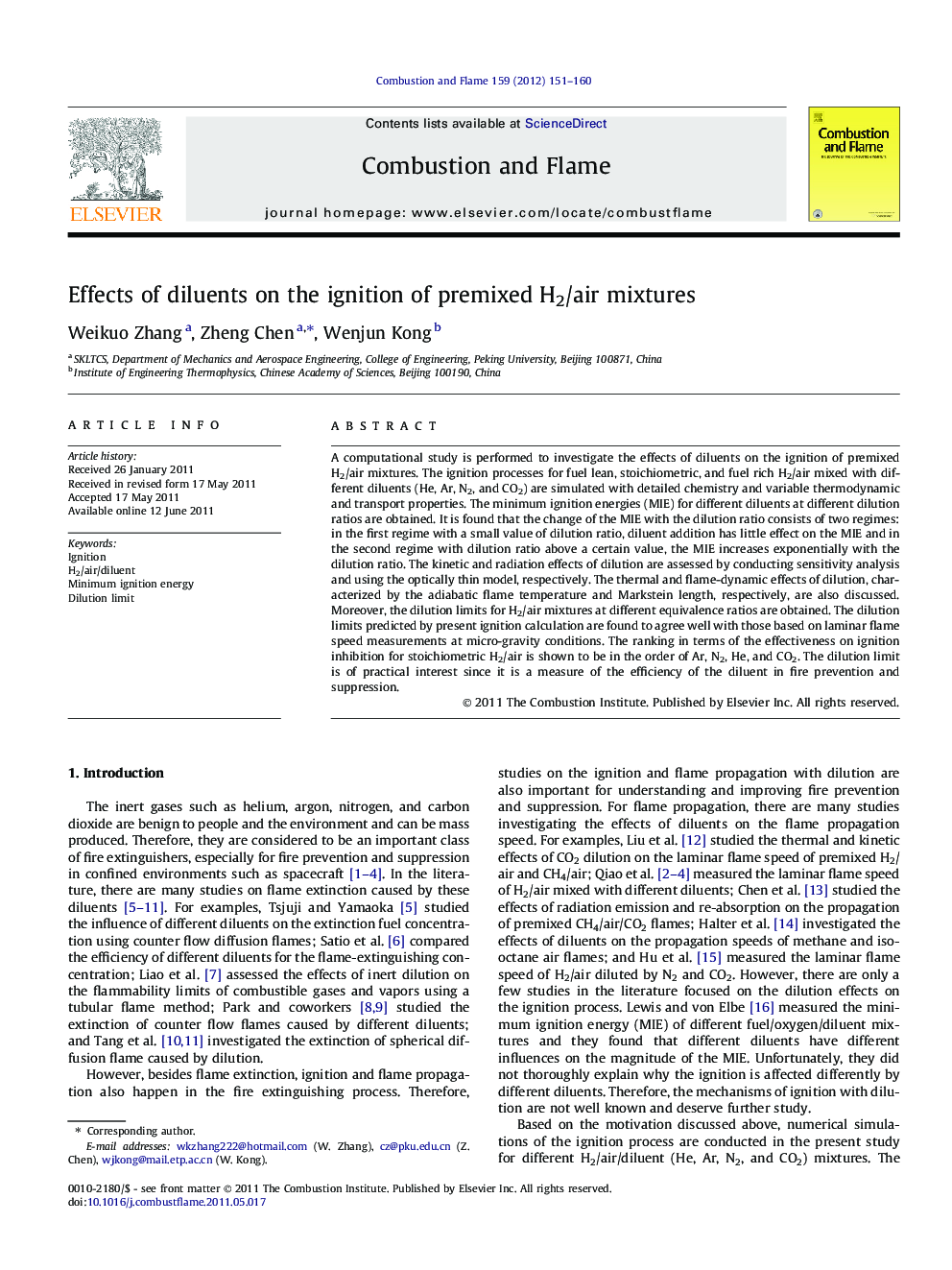| Article ID | Journal | Published Year | Pages | File Type |
|---|---|---|---|---|
| 169162 | Combustion and Flame | 2012 | 10 Pages |
A computational study is performed to investigate the effects of diluents on the ignition of premixed H2/air mixtures. The ignition processes for fuel lean, stoichiometric, and fuel rich H2/air mixed with different diluents (He, Ar, N2, and CO2) are simulated with detailed chemistry and variable thermodynamic and transport properties. The minimum ignition energies (MIE) for different diluents at different dilution ratios are obtained. It is found that the change of the MIE with the dilution ratio consists of two regimes: in the first regime with a small value of dilution ratio, diluent addition has little effect on the MIE and in the second regime with dilution ratio above a certain value, the MIE increases exponentially with the dilution ratio. The kinetic and radiation effects of dilution are assessed by conducting sensitivity analysis and using the optically thin model, respectively. The thermal and flame-dynamic effects of dilution, characterized by the adiabatic flame temperature and Markstein length, respectively, are also discussed. Moreover, the dilution limits for H2/air mixtures at different equivalence ratios are obtained. The dilution limits predicted by present ignition calculation are found to agree well with those based on laminar flame speed measurements at micro-gravity conditions. The ranking in terms of the effectiveness on ignition inhibition for stoichiometric H2/air is shown to be in the order of Ar, N2, He, and CO2. The dilution limit is of practical interest since it is a measure of the efficiency of the diluent in fire prevention and suppression.
